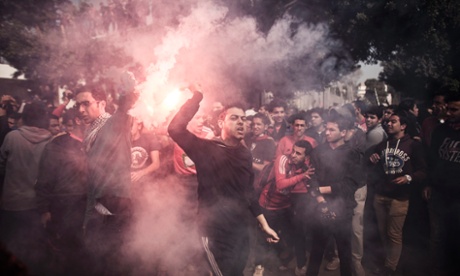
It may be one of the most successful failed blind dates in sporting history: In April 2009, when Rachel Markus, a former NYU film student and freelance writer, met up with Greg Lalas, also a writer and former professional soccer player, romance didn't spark. But when the pair's conversation turned to soccer as a shared passion, and Markus mentioned her recently thwarted plans to host a soccer film festival in London, Lalas immediately suggested they bring the project to New York.
The result was Kicking and Screening, launched a few short months later in the Fall of 2009, and whose sixth annual edition launches in New York on Tuesday before going on tour around the US.
"We had no idea what to expect", says Markus, of that first year. "We put on four nights of films and one night of talks in five different venues around New York. Greg had said, 'We'll put it on in my living room if we have to,' but as it turned out we sold out every night."
From those modest New York beginnings in 2009, the festival has grown into an ambitious celebration of the sport that has not only toured the US, but also turned up in different incarnations around the world, including the home of the game — though perhaps wisely "football" replaced "soccer" in the marketing for the Liverpool and London editions. Elsewhere, Kicking and Screening has boasted editions as far afield as India and Portland, Oregon.
In the process, the nature of the festival has changed slightly. "When we started it was more curated" says Markus. "Whereas now we're getting submissions from Indonesia, Germany...all over the place."
That said, the festival still has a local flavor of sorts — something of the evangelical zeal that marks the longstanding US soccer fan in a country where other sports dominate. "I wouldn't say the audience celebrates itself," says Markus, when that idea is put to her — "but there is perhaps a sense of celebrating a shared perspective on the world through following the sport. American soccer fans tend to have an independent mind, because they still have to seek the sport out. I liken it a little to being an early fan of Radiohead and waiting for the rest of the world to catch up!"
In its sixth year, Kicking and Screening is preparing to greet its second World Cup season with a program leaning heavily on the summer's events in Brazil, including an evening of Brazilian-inspired films and a party this Friday.
Most of these films are pretty celebratory about the sport. Markus notes that the season before and after the South African World Cup saw the organizers receive a rash of film submissions about some of the negative impacts of the tournament, and mentions that so far, they haven't had the same volume of critical submissions about the Brazilian edition.
Should such submissions arrive, they'll find the festival has an appetite for questioning wider social issues through the lens of the sport, even as it negotiates the demands of sponsors who may be less likely to want to engage with the same ideas.
Not that this year's principal sponsors, Budweiser, seem unduly perturbed. This year's festival prominently features several films that look at the wider, sometimes troubling, cultural implications of the sport, such as the narrative of racial tension in France exposed by the 1998 World Cup win, as documented in Scott Boggins & Gabriel Spitzer's Budweiser-produced documentary "One Nation". There's also a preview of Copperpot Pictures "We Must Go", which set out to document former USA head coach Bob Bradley's tenure as Egyptian national team coach, only to find itself caught up in the events and aftermath of the Arab Spring, including the notorious Port Said massacre.
Elsewhere, Benoît Mariage's "Scouting for Zebras" explores the world of African soccer agents, and is unique in the festival for being a narrative feature film, as opposed to the dominant documentary genre. Lalas claims this reflects what's out there, but also notes the historical struggle to accurately depict the drama of the game in fiction — "It's not like baseball, where the nature of the game means you can have something like 'The Natural' just cut together to approximate the movement of the game. Soccer's unique."
Soccer is indeed unique, as a global phenomenon trying to find its place in a crowded American sporting landscape that has been historically disinclined to break out of splendid isolation. A thriving fan culture has grown up over the last 20 years, centered partly on MLS sides or national supporter groups like the American Outlaws, but also around a significant consumption of European and South American soccer, as globalization and digital technology have made once hard-to-access games part of routine weekly coverage.
That interest will go through one of its quadrennial spikes this summer, as the World Cup makes temporary fans of millions of Americans. Marketers, TV execs, League and US Soccer Federation officials will scrutinize viewing figures and try to work out how to retain that interest, while Markus and Lalas (who is also the editor of the official MLS soccer site MLSsoccer.com) will watch their share of games and carry on doing what they always do — looking out for the films that continue to tell the evolving story of the game around the world. "World Cups are always big years, and maybe they make the festival a slightly easier sell to sponsors" says Markus. "But we're not every-four-year fans."
Full Kicking and Screening program details

